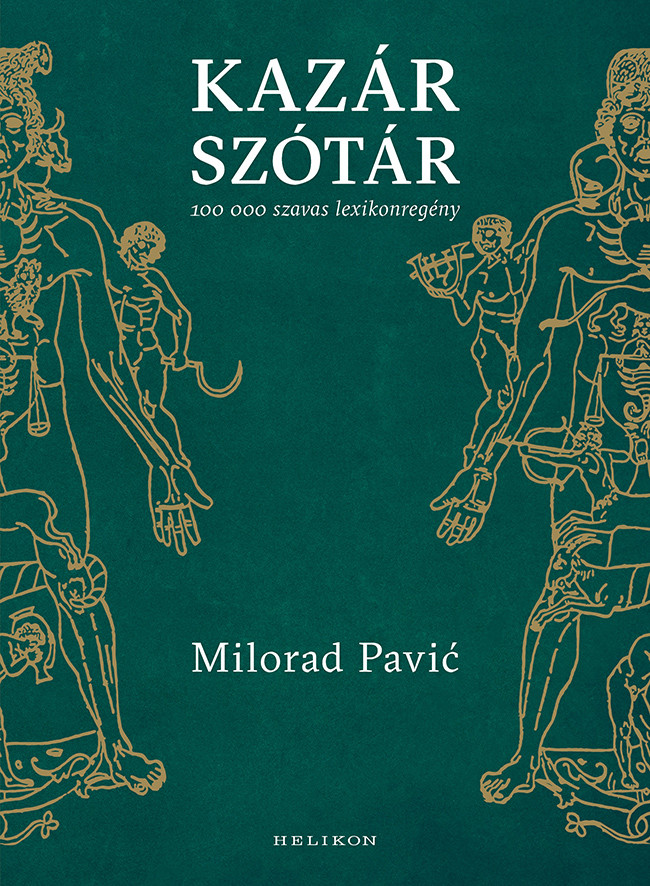Description
Kazár szótár - 100 000 szavas lexikonregény
Product Details
- Title: Kazár szótár - 100 000 szavas lexikonregény
- Author: Milorad Pavić
- Translator: Brasnyó István
- Publisher: Helikon Kiadó
- Page Count: 260
- Binding: Kartonált
- Size: 218 mm x 160 mm
- Language: Hungarian / Magyar
- ISBN: 9789634796534 / 978-9634796534
Overview
The "Kazár szótár" (Dictionary of the Khazars) is a unique lexicon novel by Milorad Pavić, originally published in Serbian in 1984. This Hungarian edition, translated by Brasnyó István, brings the intricate narratives and historical speculations of the Khazar people to a new audience.
This novel does not adhere to a conventional plot structure; instead, it revolves around the significant historical event of the mass religious conversion of the Khazar people to Judaism in the late 8th or early 9th century. The book is divided into three main time periods: the first spans the 7th to 11th centuries, focusing on the polemics and the Khazars themselves; the second period is set in the 17th century, detailing the lives of the compilers of the Khazar Dictionary; and the third briefly touches on the 1960s to 80s, featuring stories about contemporary academics related to Khazar studies. Pavić’s narrative takes the form of three interconnected mini-encyclopedias, each representing different Abrahamic religions—Christianity, Islam, and Judaism—often contradicting one another, allowing readers to engage with the text like a game of dominoes.
Hungarian Translation - Overview (Áttekintés)
A "Kazár szótár" (Dictionary of the Khazars) egy egyedülálló lexikonregény, amelyet Milorad Pavić írt, és amelyet eredetileg 1984-ben adtak ki szerbül. Ez a magyar nyelvű kiadás, amelyet Brasnyó István fordított, új közönség elé tárja a kazárok összetett narratíváit és történelmi spekulációit.
Ez a regény nem követi a hagyományos cselekménystruktúrát; ehelyett a kazár nép tömeges vallásos átállásának jelentős történelmi eseménye körül forog, amely a 8. vagy 9. század végén történt. A könyv három fő időszakra oszlik: az első a 7. és 11. század között zajlik, a polemiákra és magukra a kazárokra összpontosít; a második időszak a 17. században játszódik, a kazár szótár összeállítóinak életét részletezve; a harmadik pedig röviden a 60-as és 80-as évekre terjed ki, kortárs akadémikusokról szólva, akik valamilyen módon kapcsolódnak a kazárok tanulmányozásához. Pavić narratívája három összekapcsolt mini-enciklopédiaként formálódik, amelyek mindegyike különböző ábrahámita vallásokat képvisel - kereszténységet, iszlámot és zsidóságot -, gyakran ellentmondva egymásnak, lehetővé téve az olvasók számára, hogy a szöveggel úgy játszanak, mint egy dominó vagy kártyajáték.
Product Features
- Format: 2x Audio CD, Compilation
- Publication Date: April 11, 2022
- Genre: Novel, Postmodern literature, Speculative fiction
Interesting Facts
- Cultural Context: The Kazars were a Turkic people who played a significant role in the history of Eastern Europe, particularly during the medieval period.
- Pavić's Style: Milorad Pavić is known for his postmodern literary style, which often incorporates elements of magic realism and complex narrative structures.
- Historical Speculation: The novel invites readers to reflect on the nature of truth and interpretation, as Pavić suggests that each reader constructs their own understanding of the text.
Hungarian Translation - Interesting Facts (Érdekes Tények)
- Kulturális Kontextus: A kazárok egy török nép voltak, akik jelentős szerepet játszottak a Kelet-Európa történetében, különösen a középkori időszakban.
- Pavić Stílusa: Milorad Pavić a posztmodern irodalmi stílusáról ismert, amely gyakran magában foglalja a mágikus realizmus és a bonyolult narratív struktúrák elemeit.
- Történelmi Spekuláció: A regény arra ösztönzi az olvasókat, hogy gondolkodjanak az igazság és az értelmezés természetén, mivel Pavić azt sugallja, hogy minden olvasó saját megértését építi fel a szövegből.
Publishers
Published by Helikon Kiadó on April 11, 2022. All rights reserved under ISBN 9789634796534 / 978-9634796534.
We value your feedback! Share your experience with this product to help others make informed decisions. Your review is important to us!
Hashtags
English:
#KazárSzótár #MiloradPavic #LexiconNovel #HungarianLiterature #PostmodernLiterature
Hungarian (Címkék):
#KazárSzótár #MiloradPavic #Lexikonregény #MagyarIrodalom #PosztmodernIrodalom










